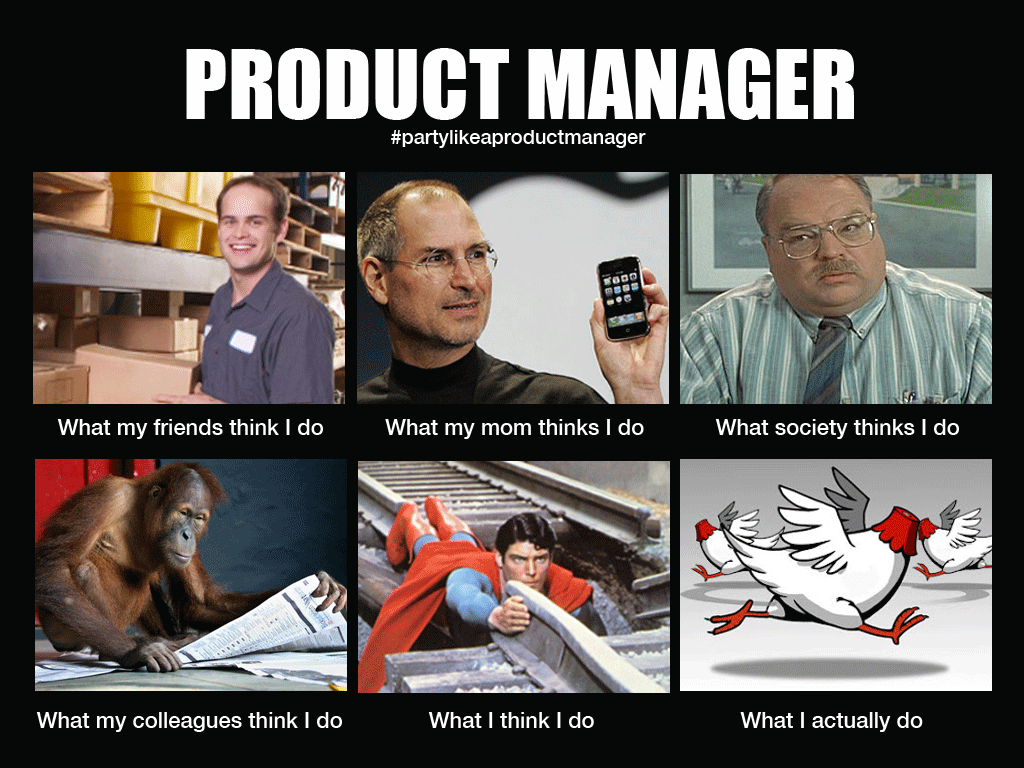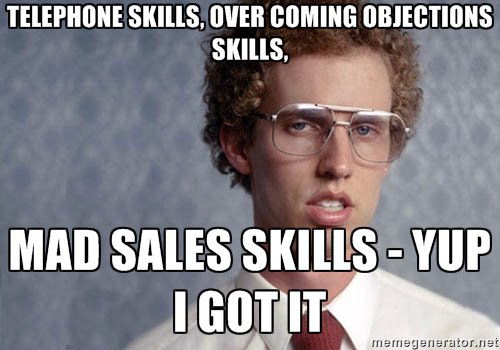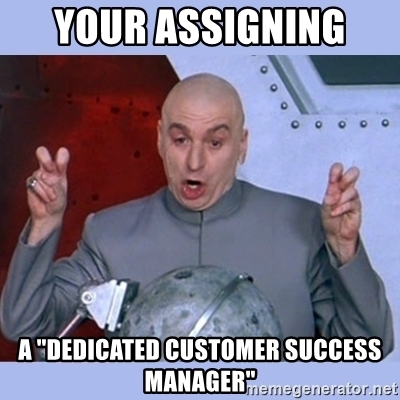How To Hire (Properly) For Startup Roles
Most founders don’t have a clue who to hire first for their startup.
All they know is that they some extra hands – and fast.
Without much thought, they get to work finding a few new full-time employees.
Don’t be that founder.
Rushing the recruitment process is going to cost your startup big time.
Common Pitfalls Of Making The Wrong Hire
Let’s start by looking at some of the most common pitfalls founders encounter when recruiting for a startup.
Hiring Family And Friends
When it’s time to make your first hire, there may be a temptation to turn to those closest to you; your family and friends.
And while this might seem like the easiest and most logical place to start – it’s probably best to avoid hiring people from your personal life.
There are two main reasons for this:
Firstly, it’s a matter of ability.
While they may have your best interests at heart, are they qualified and skilled enough to perform the role that you need them to within your business?
Secondly, your personal connection may cloud your business judgments.
No one wants to fire a close friend.
But if their actions are detrimental to business, what choice do you have?
The solution – steer clear of hiring family and friends if you can help it.
“They Will Do”
Don’t settle for “good enough.”
When hiring for a small team, or perhaps even hiring the first employee for your startup, making the right hire is critical. In spite of knowing how critical it is, according to factoHR, nearly 61% of the managers are not sure that they have the right employees in the right role in their company. This means taking extra care is essential to ensure the candidate has the right skills and attitude that you’re looking for.
Taking the approach of hiring people who mostly meet your requirements can end in disaster. It can mean expending resources to get them up to speed. Or, even worse, results in poor employee engagement, churn, and having to spend more time and more money on finding a replacement.
Take your time, do your due diligence and find somebody who is a perfect fit for the role.
What’s the solution?
How do you ensure that you’re making the right recruitment decisions for your startup?
You need to give recruitment the focus it deserves. Take your time and be picky. Getting your process right before you even hire the first employee at your startup will save you a lot of headaches down the line.
A good place to start is by having a very clear idea of the type of person your team needs.
You can elevate the efficiency of the whole process to the next level by managing your data through a project management software. With a tool to manage all data, applications, their status, relevance, results and follow-up details in a single dashboard can make the process easier. You will be at ease throughout the process and able to make better decisions without affecting your productivity and sleep.
Popular Startup Roles
Below, we’ve put together a list of the most popular roles within a startup. These can often make ideal first hires for startups.
We’ve also included a brief overview of the role and some top tips on how to improve your chances of hiring the right person.
Developer
A developer will design, build, test, and debug your software. They play a crucial role in creating your product and getting it out to your customers.
When to Hire a developer
Many startups make the mistake of hiring a developer before they really need one.
But once you have your MVP in place, have adequate funding, and are sure you have consistent development work, it’s probably time to hire your first developer.
Tips for hiring a developer
- Use real technology problems your startup has encountered to test the candidate
- Look for communication skills as well as technical ability
- Make sure their code is up-to-scratch before hiring them
Product Manager
The product manager role is highly misunderstood. In a nutshell, product managers’ role includes understanding the problems your customers face and the ways your product can solve them. Your product manager reports to the product owner (or founder) and works with developers and designers to make shit happen.
When to hire a product manager
In the early stages of a startup, the founder will assume the role of the product manager. However, when their responsibilities require them to focus on different aspects of the business, a product manager will be required.
Tips for hiring a product manager
- Ask probing questions to assess their attitude towards product management
- Look for somebody who is a strong problem-solver and is highly curious
- Test them during the recruitment process to properly qualify their abilities
Growth Marketer
A growth marketer essentially does what it says on the tin. Using data-driven, analytical marketing techniques, a growth marketer will propel your startup forward.
When to hire a growth marketer
Before hiring a growth marketer, you need product-market fit. Once you have that, it’s time to find a talented growth marketer who can get your product out there.
Tips for hiring a growth marketer
- Have a solid candidate persona in mind with a clear understanding of what this person needs to do for your startup.
- Look for somebody results-driven with a passion for testing and learning.
- Experience in managing high-priority marketing channels and hands-on experience with marketing tools is essential.
Sales People
The first sales reps your startup hires will be responsible for closing deals with customers and creating the framework for how your business sells.
When to hire salespeople
It’s recommended that founders close some deals themselves before considering hiring salespeople. But once this obstacle has been overcome, it’s time to bring in your first salesperson.
Tips for hiring a salesperson
- Sales staff turnover can be much higher than for other roles, it may be worth hiring more than one sales rep, to begin with.
- Always aim to find salespeople with a strong track record for hitting and exceeding targets.
- Look for skills and experience with common SaaS sales tools. For example, you could test candidates’ Salesforce skills with a hiring assessment.
Customer Success Managers
Your customer success managers (CSM) ensure that people don’t just purchase your product then never use it. They form a relationship with the customer and advise them on how they can get the most from your product.
When to hire a customer success manager
There’s a bit of a debate on this one. Some say you should hire a customer success manager as soon as you start onboarding high paying customers, while others say everyone in the company should do customer success.

Jason Lemkin, founder of SaaStr“Hire your first CSM as early as you can afford to, as soon as you have even 1 large customer or even a handful of medium-sized customers.”
Tips for hiring a customer success manager
- Experience is important, but as customer success is a relatively new field, you should also keep an eye out for potential.
- Ask for writing samples that demonstrate strong written communication skills.
- A CSM should be a natural people-person – much of the role depends on them building relationships and rapport.
VPs
A VP – Vice President – is a member of your startup’s senior leadership team. They sit below C-suite leaders in terms of hierarchy and will be the vice president of a certain department; for example, sales or engineering.
When to hire a VP
VPs of particular departments are usually hired when the startup has expanded in terms of headcount.
If you have a sizable development team, for example, it may make sense to hire a VP of Engineering to scale the team, allowing the CTO to focus on other areas of the business’s technology.
Tips for hiring a VP
- Aim to find somebody who has seen a successful scale in previous businesses.
- Leadership skills are critical for a successful VP.
With VP roles, more so than any other, it’s crucial you don’t settle for anything less than exceptional.
Alternatives to Hiring
There will be circumstances when it doesn’t make sense to hire a full-time employee – not in the traditional sense anyway. Below are a couple of alternative methods of expanding your startup.
Bringing on more co-founders
Early on in your startup’s journey, it may be more logical to bring in another co-founder. After all, nobody is an island, as the saying goes.
Below, we will look at the pros and cons of bringing in additional co-founders.
Pros
- Distribution of workload – having a co-founder means (hopefully) less stress for you in terms of workload. Work can be even distributed meaning your startup can achieve more without you succumbing to burnout.
- Broader perspectives – Your co-founder and you are likely to have different backgrounds and experiences. This could prove valuable for your startup as it means you can approach things from a much more knowledgeable and informed position.
- Somebody to get genuine feedback from – As the founder of a startup, it’s unlikely that any of your staff will be as frank about your ideas as a co-founder. It’s important to have somebody who will give you honest feedback on your ideas.
Cons
- Differing standards – You may have very high standards in terms of what you expect from certain aspects of your startup. Your co-founder may not share these same standards and this can cause friction.
- Having to compromise on your vision – Following on from the last point, bringing on a co-founder means sharing control of the direction of your startup. This will ultimately mean having to compromise on your vision in one way or another.
- Takings have to be split – Your co-founder will have a split of equity and this can make earning a decent living from your startup more challenging. And the more co-founders you take on, the more this becomes a problem.
Outsourcing to freelancers
There may be occasions where the tasks that need doing are sporadic and don’t necessarily warrant a full-time employee. In these instances, outsourcing to freelancers is the way to go. For example, if you are developing a software product, a business analyst’s role can be outsourced along with development activities.
Below, we’ve listed the pros and cons of using freelancers at your startup.
Pros
- Wide variety of expertise – With so many freelancers available for hire, it shouldn’t be hard to find somebody who does exactly what you need them to.
- Lower costs for your startup – While freelancers can be costly in terms of their fees (not always, however), they don’t require any other costs, such as setup, health insurance, and so on.
- Availability – If you’re looking for a freelancer, they’re not hard to find. There are many platforms online which make finding a freelancer quick and easy.
Cons
- Potential for low-quality work – If you don’t properly vet your freelancer before handing a project to them, there’s a possibility you’ll get something back that isn’t as high-quality as you were expecting. This is especially true when you’re looking for low-cost freelancers.
- Being ghosted – As freelancers aren’t as connected to your business as full-time employees, there is a capacity for them to just disappear into thin air. This can be frustrating (to say the least) if it’s during an important project.
- Missed deadlines – It’s best to get time-sensitive projects completed well in advance by freelancers as missed deadlines are a very real possibility.
Furthermore, growing companies are reluctant to hire freelancers because they find it difficult to manage a vast freelance employee base. However, there are many cloud-based freelance management systems that help you do so. From hiring to paying off your freelance employee, it can help you manage everything.
Final thoughts
The message is: take recruiting for your startup seriously – your business depends on it.
By taking your time, and finding candidates who are exactly what you’re looking for, you will achieve much better results in the long-run.
And remember – it doesn’t hurt to be picky, but not being picky enough can certainly hurt your business.
Want further guidance from somebody who has successfully navigated the recruitment obstacles you’re currently facing?
With GrowthMentor, you can book 1:1 video or phone calls with startup mentors who have the knowledge and experience to lead you to success.











